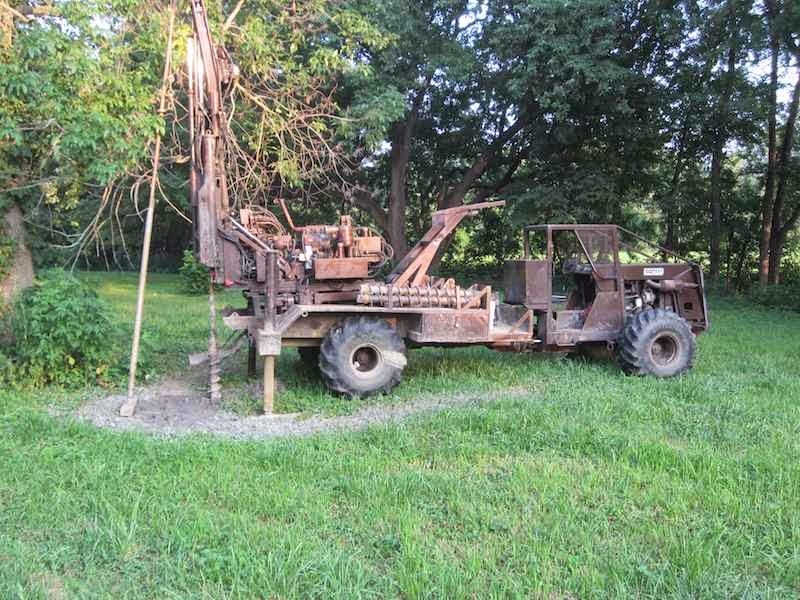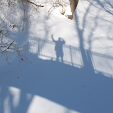Sunday, August 3, 2014
Nature, Parks, and Gardens
Last week I was surprised to see a frog attached to a window. It did not seem to mind when I took a flash photo of it. It may be an eastern gray tree frog, which can change colors to some extent to match its background.
For the past few years I have been trying to get some prairie flowers growing along the street by my house. This year I got yellow coneflowers big enough to bloom--a lot of prairie perennials do not bloom the first year. In the background are false sunflowers.
I walked through the high school prairie area last week to see how their plants were doing and noticed that there was a lot of giant ragweed and wild carrot invading their fields. I thought that natural prairies were resistant to invasion by these interlopers, so I wonder if their planting is not balanced quite right.
I have been traveling a lot recently, one reason posting has been erratic. One place I stopped was at a Lebanon city park where they have a hill as an attraction. Such a simple thing yet kids enjoy it. Two boys were using the hill to launch kites while I was watching. They would run down the hill with their kites and that would get them up into the air. There are a lot of things kids can find to do with a hill.
Another simple park feature that many communities are adding are splash pads. They can be quite small or fairly elaborate. Often they are activated by pressing a button and then they stay on for a few minutes. To continue playing, the button has to be pressed again. They are like fountains but people are encouraged to play in them instead of staying out of them.
The Rensselaer Republican had an article on July 14 about the RBI softball league's new home, a field that volunteers and parents built behind Bethany Free Church. I finally got out there to see what they had done.
While I was on the east side of town I took a look at the raised bed gardens that CDC Resources had installed last year for their consumers. One of the beds was mostly beans and cucumbers and they were doing well. They were a bit surprised at how much cucumbers spread.
The raised bed gardens were constructed last year by the Teen Mission group. This year they laid the foundation stones for a small greenhouse. The foundation is visible above the garden.
If you want to do a cheap version of a raised bed garden, find some five gallon plastic buckets, cut off their bottoms, place them on the ground, and fill them with good soil. Plant whatever you want to plant and see what happens. My daughter-in-law tried sweet potatoes last year and was surprised by how much they yielded.
This evening I noticed a drilling machine next to Lincoln Street. My guess is that it is doing drilling cores to test for the foundation of the storm water treatment plant that the city is required to build. It has gone beyond the talking.
Do you know what a banner stone is? If you collect Indian artifacts, you certainly do, because banner stones are highly collectable. However, the purpose of these objects remains the subject of controversy. They almost certainly were associated with atlatls, the dominant weapon and hunting device prior to the bow and arrow. The banner stones were developed only in North America (though atlatls were used throughout the world). Rensselaer resident David Volken has had an article published in an archeology journal that argues that banner stones were not attached to the atlatl or spear thrower itself as many in the field believe, but to the dart or spear to give it more momentum and thus striking power.
People today think that we are much smarter than people in the past (after all, we have cell phones), but despite all of our technology, there are bits of lost technology that we are still struggling to understand and recover.
(The frog likes my window. It is back again tonight.)
For the past few years I have been trying to get some prairie flowers growing along the street by my house. This year I got yellow coneflowers big enough to bloom--a lot of prairie perennials do not bloom the first year. In the background are false sunflowers.
I walked through the high school prairie area last week to see how their plants were doing and noticed that there was a lot of giant ragweed and wild carrot invading their fields. I thought that natural prairies were resistant to invasion by these interlopers, so I wonder if their planting is not balanced quite right.
I have been traveling a lot recently, one reason posting has been erratic. One place I stopped was at a Lebanon city park where they have a hill as an attraction. Such a simple thing yet kids enjoy it. Two boys were using the hill to launch kites while I was watching. They would run down the hill with their kites and that would get them up into the air. There are a lot of things kids can find to do with a hill.
Another simple park feature that many communities are adding are splash pads. They can be quite small or fairly elaborate. Often they are activated by pressing a button and then they stay on for a few minutes. To continue playing, the button has to be pressed again. They are like fountains but people are encouraged to play in them instead of staying out of them.
The Rensselaer Republican had an article on July 14 about the RBI softball league's new home, a field that volunteers and parents built behind Bethany Free Church. I finally got out there to see what they had done.
While I was on the east side of town I took a look at the raised bed gardens that CDC Resources had installed last year for their consumers. One of the beds was mostly beans and cucumbers and they were doing well. They were a bit surprised at how much cucumbers spread.
The raised bed gardens were constructed last year by the Teen Mission group. This year they laid the foundation stones for a small greenhouse. The foundation is visible above the garden.
If you want to do a cheap version of a raised bed garden, find some five gallon plastic buckets, cut off their bottoms, place them on the ground, and fill them with good soil. Plant whatever you want to plant and see what happens. My daughter-in-law tried sweet potatoes last year and was surprised by how much they yielded.
This evening I noticed a drilling machine next to Lincoln Street. My guess is that it is doing drilling cores to test for the foundation of the storm water treatment plant that the city is required to build. It has gone beyond the talking.
Do you know what a banner stone is? If you collect Indian artifacts, you certainly do, because banner stones are highly collectable. However, the purpose of these objects remains the subject of controversy. They almost certainly were associated with atlatls, the dominant weapon and hunting device prior to the bow and arrow. The banner stones were developed only in North America (though atlatls were used throughout the world). Rensselaer resident David Volken has had an article published in an archeology journal that argues that banner stones were not attached to the atlatl or spear thrower itself as many in the field believe, but to the dart or spear to give it more momentum and thus striking power.
People today think that we are much smarter than people in the past (after all, we have cell phones), but despite all of our technology, there are bits of lost technology that we are still struggling to understand and recover.
(The frog likes my window. It is back again tonight.)
Subscribe to:
Post Comments (Atom)









1 comment:
Regarding the "bannerstone" article, there will be lots of feedback, as it contradicts what the whole archaeological world has believed for over 75 years! To
prove me wrong, they'll have to take-on Galileo and Isaac Newton, as well. Will keep you posted.
David J. Vohlken
Post a Comment